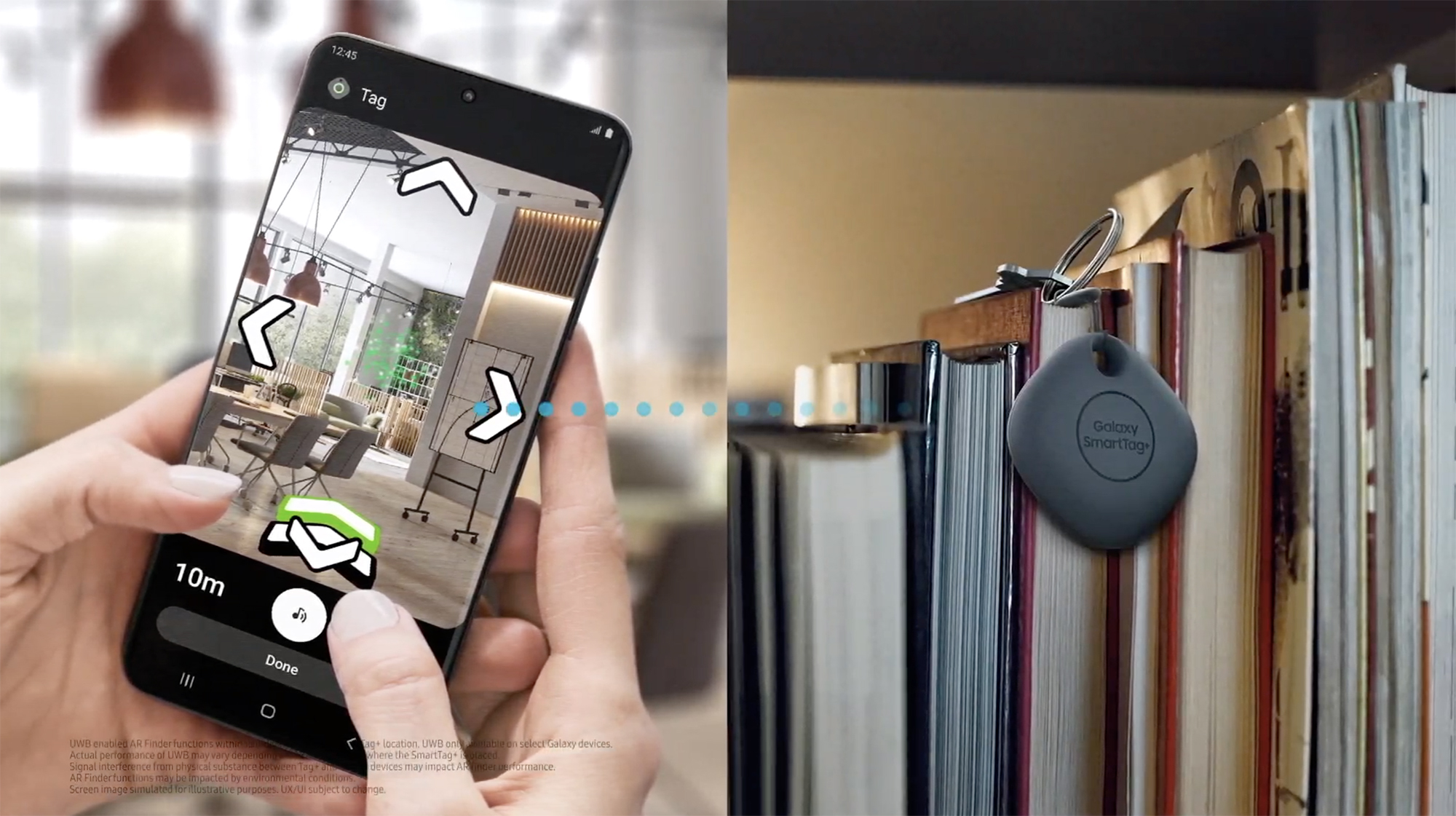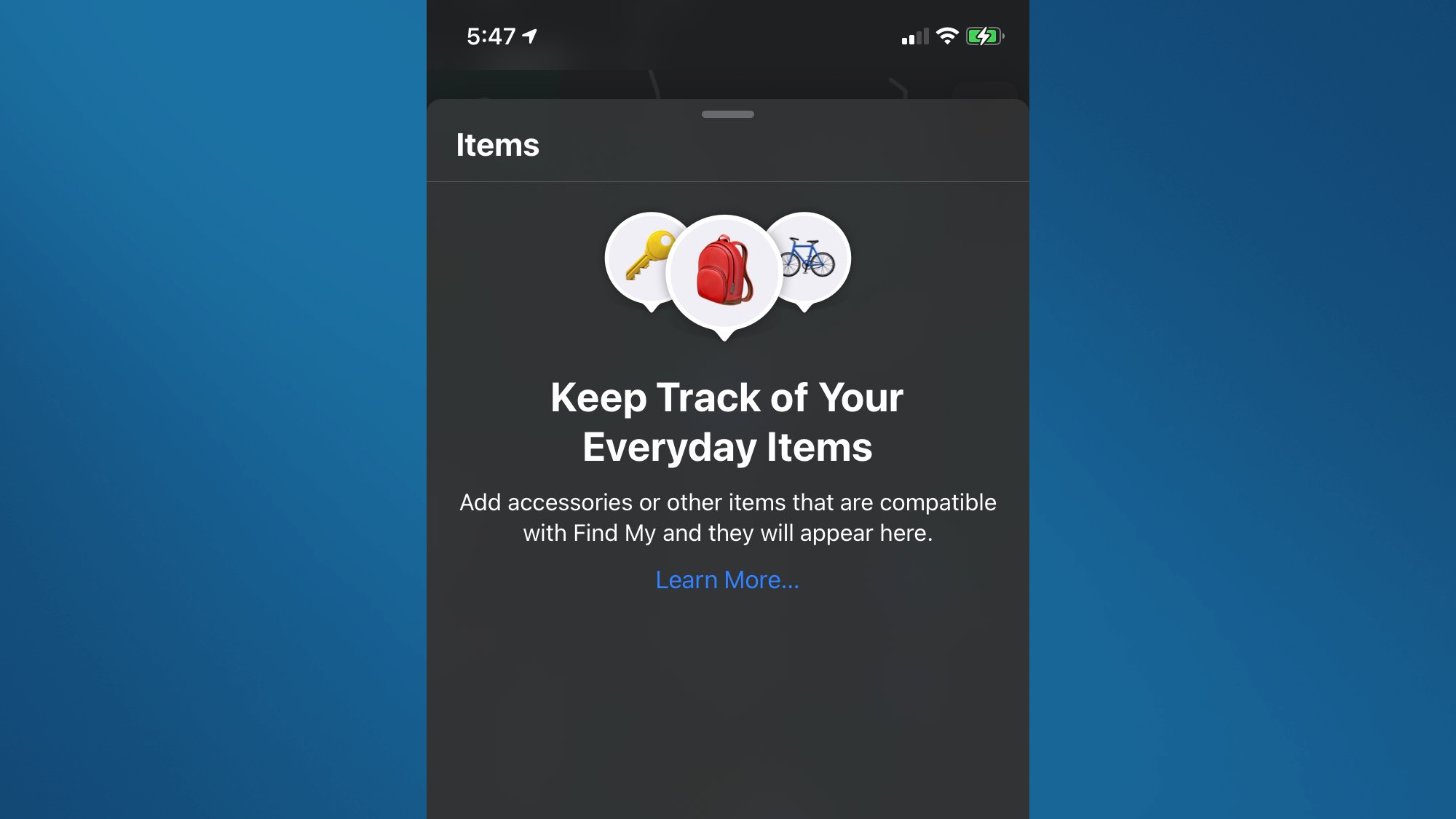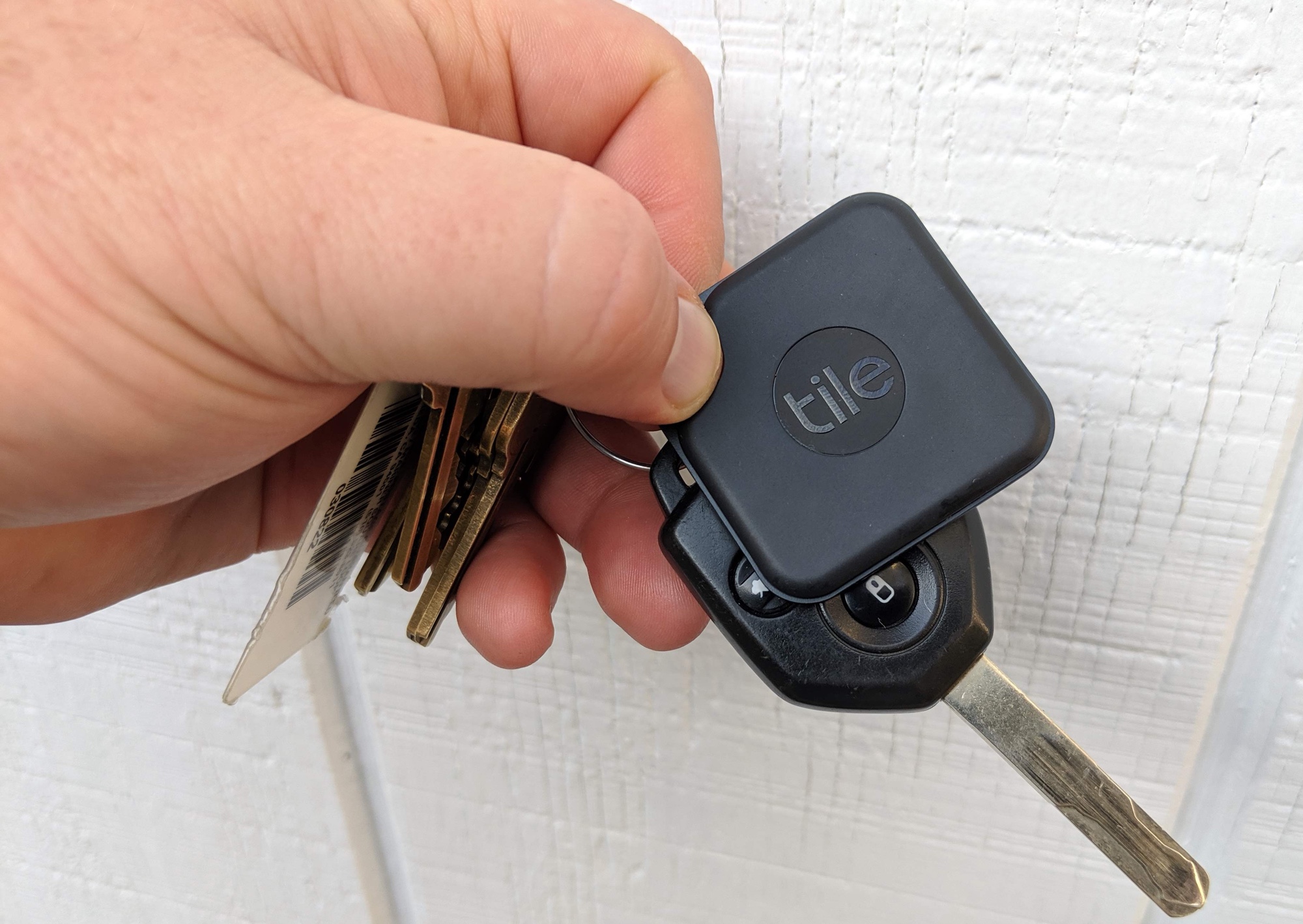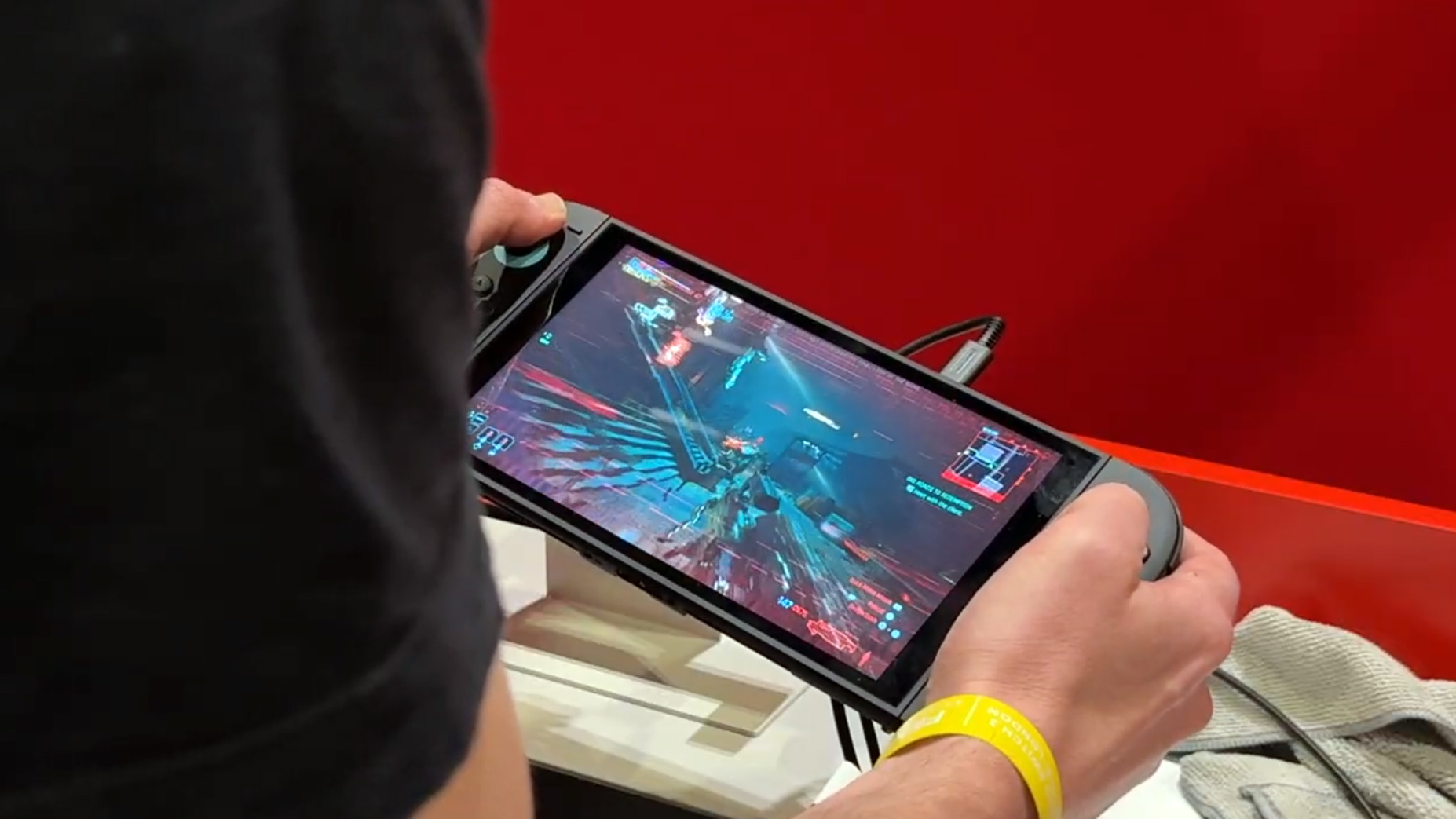AirTags launch imminent: Will Apple’s key finder truly deliver?
After years of rumors, an Apple-built key finder may finally launch — here’s what’s at stake for AirTags

The era of Apple's AirTags may soon be upon us. And that means we'll finally get to see whether this long-promised product finder can truly shake up the best key finder market for tracking devices and other items.
Apple is expected to reveal AirTags at its next big product launch, which is now expected to be part of an Apple April event that may include the iPad Pro 2021. Should AirTags appear — and it seems like they've been promised at every Apple event dating back years — it figures to give a jolt to the key finder market, as Apple is expected to take a different approach from traditional Bluetooth-based trackers.
- Apple April event: AirTags, iPad Pro 2021, AirPods 3 and other possible products
- The best iPhones right now
And there's the rather significant fact that support for AirTags figures to be tied into Apple's iOS software. iOS 14.5 — currently in public beta — hints that you'll be able to track things like keys, luggage and other items using the Find My app, which previously tracked down Apple devices.
According to Avi Greengart, president and lead analyst at Techsponential, it's the "integration with Apple’s hardware and software" that will help AirTags stand out from a crowded field of the best key finders.
Apple and Samsung eye the key finder market
Right now, the key finder market is dominated by Tile, whose latest version of trackers last came out in late 2019. Up until now Tile's biggest competition has come from Chipolo, another company that makes trackers that connect to your phone via Bluetooth and let you pinpoint the whereabouts of items attached to the tracker, provided they're in range of your phone.

But bigger players are starting to get interested in this market. Before AirTags have even seen the light of day, Samsung came along with a tracker of its own. The Galaxy SmartTag was introduced in January alongside the Galaxy S21 phones, and it works a lot like current key finders do. You connect to the $30 SmartTag over Bluetooth and find the location of items through an app on your phone — in this case, Samsung's SmartThing app.
Samsung has bigger plans for its SmartTag, though. A second version, SmartTag Plus, is coming later this year, and it will use ultra wideband connectivity on Samsung's Galaxy phones to increase the tracking range for items as well as provide more precise location data. That figures to give SmartTags a leg up on the competition.
Sign up to get the BEST of Tom's Guide direct to your inbox.
Get instant access to breaking news, the hottest reviews, great deals and helpful tips.
How AppleAir Tags will work
Apple's AirTags are expected to use ultra wide-band, too, since that connectivity has been built into iPhones since the iPhone 11. And unlike the Galaxy SmartTag, that extra connectivity figures to be a central part of AirTags right out of the gate.
Like Samsung's tracker, you're going to be able to manage Apple's AirTags from an app that's pre-installed on your iPhone — in this case, the Find My app. And to prevent the misuse of AirTags to track people without their knowledge, Apple is supposedly including a anti-stalking feature that will alert you if there's an unrecognized AirTag trying to connect to your phone.

We’ve also heard rumors that Apple may leverage augmented reality to help you better locate items. The idea is that you may see that lost set of keys as you hold up your phone and pan around the room, and it would work through your iPhone camera’s live view.
Add it all up, and AirTags sounds like a much more sophisticated — and possibly more expensive — product than the current key finders out there. The most expensive Tile — the Tile Pro — currently costs $35, so AirTags may come in at a higher price than that. For what it's worth, Samsung plans to sell its SmartTag Plus for $40.
What AirTags will mean for the key finder market
Even at a similar price, AirTags could be a lucrative addition to Apple's lineup. In January, Tim Cook told Reuters that Apple had an installed base of more than 1 billion iPhones, representing a lot of people who might be interested in using their phone to track down misplaced keys and other items.
"One of the key reasons for Samsung and Apple to enter the tracking market is to broaden their respective ecosystems," Greengart said. "Phones are the anchor point for devices, wearables, software, and services."

That doesn't necessarily bode ill for the Tiles and Chipolos of the world, though. "As Apple and Samsung enter the tracking market, it certainly becomes harder for some smaller, independent competitors, but it also brings attention and legitimizes the market," Greengart said. "As we have seen with chargers and cases and headphones, there is usually still room for strong third-party brands."
Of course, Apple will have to actually release AirTags for all this to take place, and Apple watchers can be forgiven if they're getting a little impatient waiting for the key finders to arrive. Initial rumors about AirTags first surfaced in the second half of 2019, and it seemed like every Apple product launch last year was supposed to include an appearance by AirTags that never came.
Now, it seems that AirTags are finally going to arrive sometime this spring. And that's when we'll know if Apple has tracked down a better way of keeping tabs on your valuables.
Philip Michaels is a Managing Editor at Tom's Guide. He's been covering personal technology since 1999 and was in the building when Steve Jobs showed off the iPhone for the first time. He's been evaluating smartphones since that first iPhone debuted in 2007, and he's been following phone carriers and smartphone plans since 2015. He has strong opinions about Apple, the Oakland Athletics, old movies and proper butchery techniques. Follow him at @PhilipMichaels.

